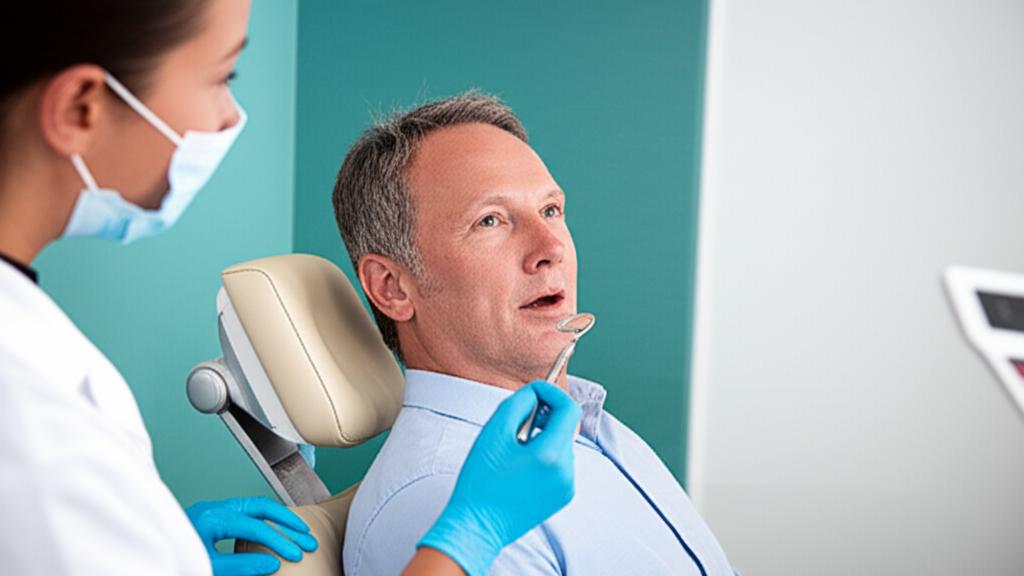I remember a patient, let’s call him John, who came in looking a bit down. He wasn’t sleeping well, felt generally off. After we chatted for a bit, he mentioned a nagging toothache he’d been ignoring. “It’s just a tooth, doc,” he said. But that “just a tooth” was impacting his whole well-being. It’s a good reminder that our oral health is so closely tied to our overall health. And that’s where your dentist steps in – they’re the experts who help keep your teeth and gums in fantastic shape. Think of them as partners in your health journey, just like your family doctor.
So, What Exactly Does a Dentist Do?
Your dentist is a healthcare professional, a doctor really, who specializes in everything to do with your mouth. They diagnose and treat conditions affecting your teeth, gums, and even your jaw. It’s not just about drilling and filling anymore!
They handle a whole range of things, like:
- Regular check-ups: This is where they take a good look around, making sure everything is healthy.
- Preventive care: Things like professional cleanings, fluoride treatments to strengthen enamel, and sealants (a thin coating) to protect teeth from decay. Little things that make a big difference.
- Restorative dentistry: If a tooth is damaged or missing, they can repair it with fillings, or replace it.
- Cosmetic dentistry: Want to brighten your smile? They can help with that too.
And yes, dentists can prescribe medications if you need them. For instance:
- Anti-anxiety medicines: If the thought of a dental visit makes you jittery (and you’re not alone!), this can help.
- Antibiotics: To tackle or prevent infections in your mouth.
- Sedatives: To help you relax during procedures.
- Pain relievers: For any discomfort from oral health issues.
Are There Different Kinds of Dentists?
You bet! Most of us are familiar with our general dentist. They’re your go-to for a wide array of services, from those routine cleanings and maybe teeth whitening, to things like fillings or even dental implants. They’re the ones you probably picture when you think of a dental visit.
But then there are specialists, for when things get a bit more complex:
- Endodontists: If you’ve ever heard of a root canal, these are the experts. They deal with issues inside your tooth.
- Oral surgeons: They handle more complex procedures, like taking out tricky wisdom teeth or other surgeries involving your mouth.
- Orthodontists: These are the folks who help straighten teeth and align your bite, often using braces or clear aligners.
- Pediatric dentists (or pedodontists): They specialize in kids’ dental health. So important for a good start!
- Periodontists: Gum health is their focus. They treat gum disease and other conditions affecting the tissues supporting your teeth.
- Prosthodontists: These dentists are experts in making tooth replacements like crowns, bridges, and dentures.
There are even dentists who work in public health, developing programs for the community, or forensic dentists who help in legal investigations. Fascinating, right?
How Often Should I See My Dentist?
This is a common question I get. The American Dental Association (ADA) generally suggests regular visits for exams and cleanings. For many people, twice a year is a good rhythm. However, if you’re more prone to things like cavities or gum disease, you might need to pop in a bit more often. Your dentist will let you know what’s best for you.
Think of it this way: regular visits help catch little problems before they become big, expensive, and worrisome ones.
You should also definitely make an appointment if you notice things like:
- A persistent toothache. Don’t ignore it!
- An abscessed tooth (this is a serious infection).
- If you think you might be grinding your teeth (bruxism).
- Chipped or broken teeth.
- Pain in your jaw.
- Mouth ulcers that aren’t healing.
- Bad breath (halitosis) that just won’t go away.
- Swollen or bleeding gums.
- New or worsening tooth sensitivity.
What If I’m Really Nervous About the Dentist?
Oh, believe me, you’re not the only one. Dental anxiety is very common. I’ve had many patients share their fears. The most important thing is to talk to your dentist about it. They understand! Many offer options like sedation dentistry to help you feel calm and comfortable during your appointment. Don’t let fear keep you from getting the care you need.
A Quick Note on Titles: DDS vs. DMD
You might see “DDS” (Doctor of Dental Surgery) or “DMD” (Doctor of Dental Medicine) after a dentist’s name here in the U.S. Wondering what the difference is? Honestly, for you as a patient, there isn’t one. Both mean your dentist graduated from an accredited dental school and has the same level of training. They can perform all the same procedures. It’s just different universities use different titles.
It takes a lot of dedication to become a dentist – usually around eight years of schooling after high school for a general dentist, and even longer (10-11 years) for specialists, as they complete additional residency programs. And if you see “board-certified,” that means your dentist has gone the extra mile, passing rigorous exams to show their commitment to top-notch care.
Take-Home Message: Your Dentist is Your Health Ally
Here’s what I really want you to remember about seeing your dentist:
- Oral health is overall health: Don’t underestimate the connection.
- Prevention is key: Regular check-ups and cleanings can save you a lot of trouble.
- Don’t ignore symptoms: Pain, bleeding, or unusual changes in your mouth need checking out.
- Talk about your fears: Dentists are there to help, even if you’re anxious.
- Your dentist is a highly trained professional: They’re dedicated to your well-being.
Seeing your dentist regularly is a really smart investment in your health.
You’re not alone in figuring this all out. We’re here to help guide you.


